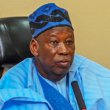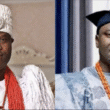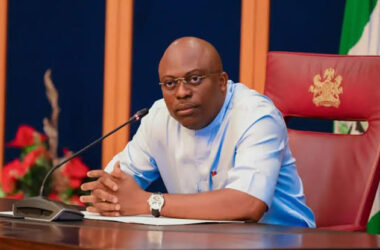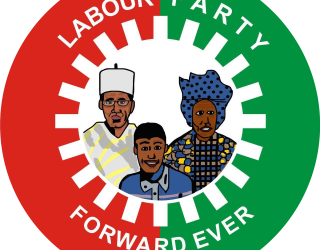John Cardinal Onaiyekan, a respected Catholic prelate and former Archbishop of Abuja, has delivered a sobering critique of the Tinubu administration’s claims of progress, particularly on national security.
Speaking during an interview on Inside Sources with Laolu Akande on Channels Television on Friday, the revered cleric questioned the credibility of government officials who proclaim the country is safer—yet still move around with heavy security entourages.
“Again, in the scorecard, we heard that of the government, they are saying, oh, they’ve made massive progress in security, that the nation is now safer than it ever was before. And I’m asking myself, in that case, why are they surrounding themselves wherever they are going with all this army of security, all this gun-toting security agents?” he asked. “If the country is so safe, surely a minister should be able to enter his car, maybe with an orderly, and travel to wherever he wants. Until they do that, they should stop telling us.”
Cardinal Onaiyekan’s comments come as the government continues to push a narrative of improvement and reform, despite persistent reports of insecurity, inflation, and hardship. He also expressed concern about what he sees as a disturbing shift in political accountability. According to him, many officials now act as if they were not elected for a defined four-year term.
“But I hope we should not forget that they were elected for four years. What I’m hearing now is as if they were all, we didn’t elect them for four years. And they were telling us when we are going to judge their performance is not a midterm, it’s just two years after four years. I said, wait a minute, what’s happening? When did we change the rules?” he asked pointedly.
In a tone both critical and pastoral, the Cardinal urged the Tinubu administration to remember the urgency and limitations of time. He emphasized that the government cannot endlessly ask citizens to “bear the pains” of reforms without showing tangible progress or personal sacrifice on the part of leaders.
“You are telling people to make an act of faith in you. The kind of act of faith that they make only for God. That no, just bear the pains. We shall soon begin to smile,” he remarked.
Quoting a Yoruba proverb, the Cardinal further illustrated his point: “In my town, my own part of Yoruba land in Kabba, we say the pounded yam that will fill your stomach, it is from the sight that we know it. When you see the pounded yam in front of you, you know whether this is going to fill from the side. So the question is, we should know by now where we are going.”
Onaiyekan noted that it is not enough to ask the populace for patience while the ruling class continues to live lavishly. He lamented the government’s failure to cut its own excesses as it enforces austerity on the masses.
“We should see there that there is a tightening of belt, that there’s readiness to be patient. But we don’t see it because this government has been, it has not been less reckless than previous governments in terms of the remuneration of appointees, and even our men in the House of Reps, how they have completely put themselves on a totally different pedestrian from the rest of Nigerians.”
The Cardinal made it clear that religious leaders cannot be expected to echo government narratives that lack credibility and moral weight.
“You can’t be doing that and expect me as a religious leader to pick up your sermon notes on patience and come and preach that to the people in my church who are suffering. It’s difficult for us to do that. We will preach patience all right, but we also preach trust in God, trust in the future, a better future.”
He advised the President and his team to pay closer attention to public feedback and criticisms—especially from citizens who may have been excluded from the policy-making process or dismissed as “disgruntled losers.”
“There are many people who are saying this is not only the best direction to take, it is perhaps not even the right direction to take. I would hope, therefore, that this meeting should be a good opportunity for Mr. President and his team to not only look at the scorecard that they have prepared for themselves, but also look at the remarks that are coming from those whom they are ruling,” he urged.
Cardinal Onaiyekan pointed out the worsening living conditions in Nigeria and warned that citizens are not asking for luxury but simply a return to basic standards of life they once enjoyed.
“People are not asking that every family should have an SUV. They are not asking for much. They are just asking to be able to live a decent life. And it is not as if this is something we have never enjoyed before.
“In fact, why is it painful? Because Nigerians have been used over the years to a minimum of decent living. And when you come into a government and that minimum of decent living suddenly plunges down, I thought it used to be a cause for concern.”
Reflecting on Nigeria’s long-standing challenges, he added, “What are we not getting right? In the three big areas we have been talking about since the time of Jonathan, namely economy, security, and corruption. And within corruption is the whole question of governors. Those three areas we have been working on that. And I’m not sure we have been making progress.”










